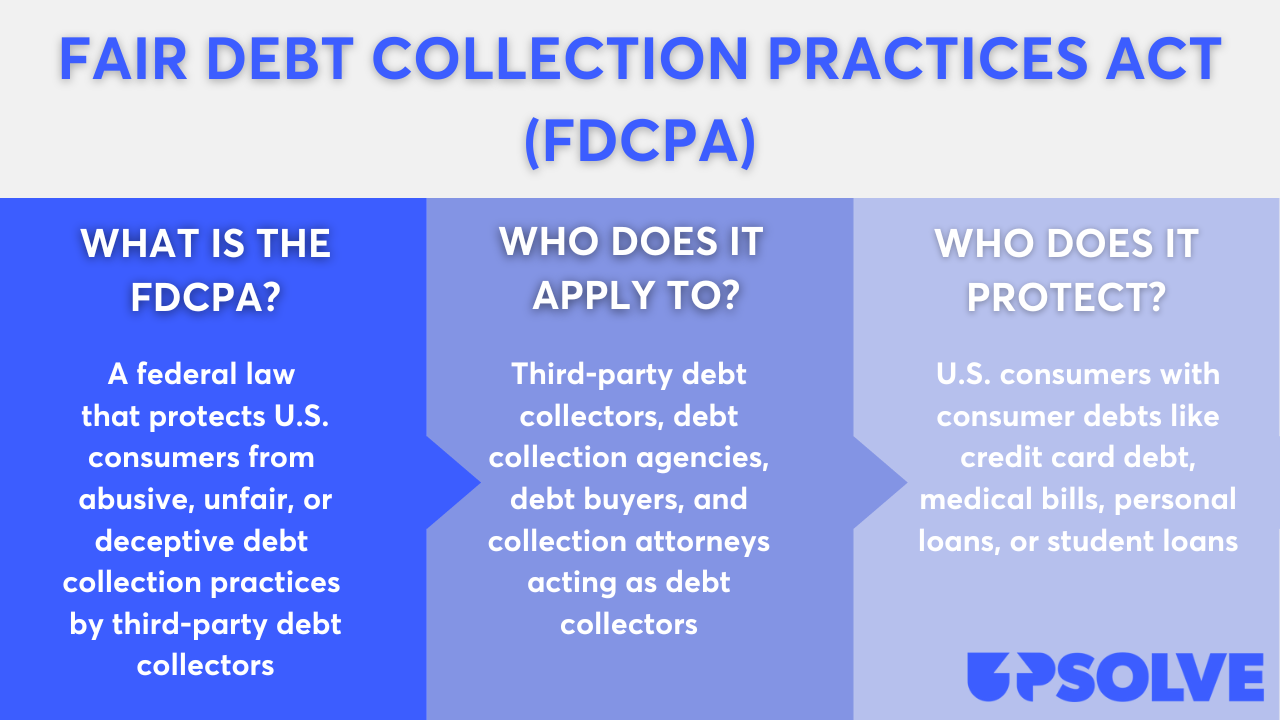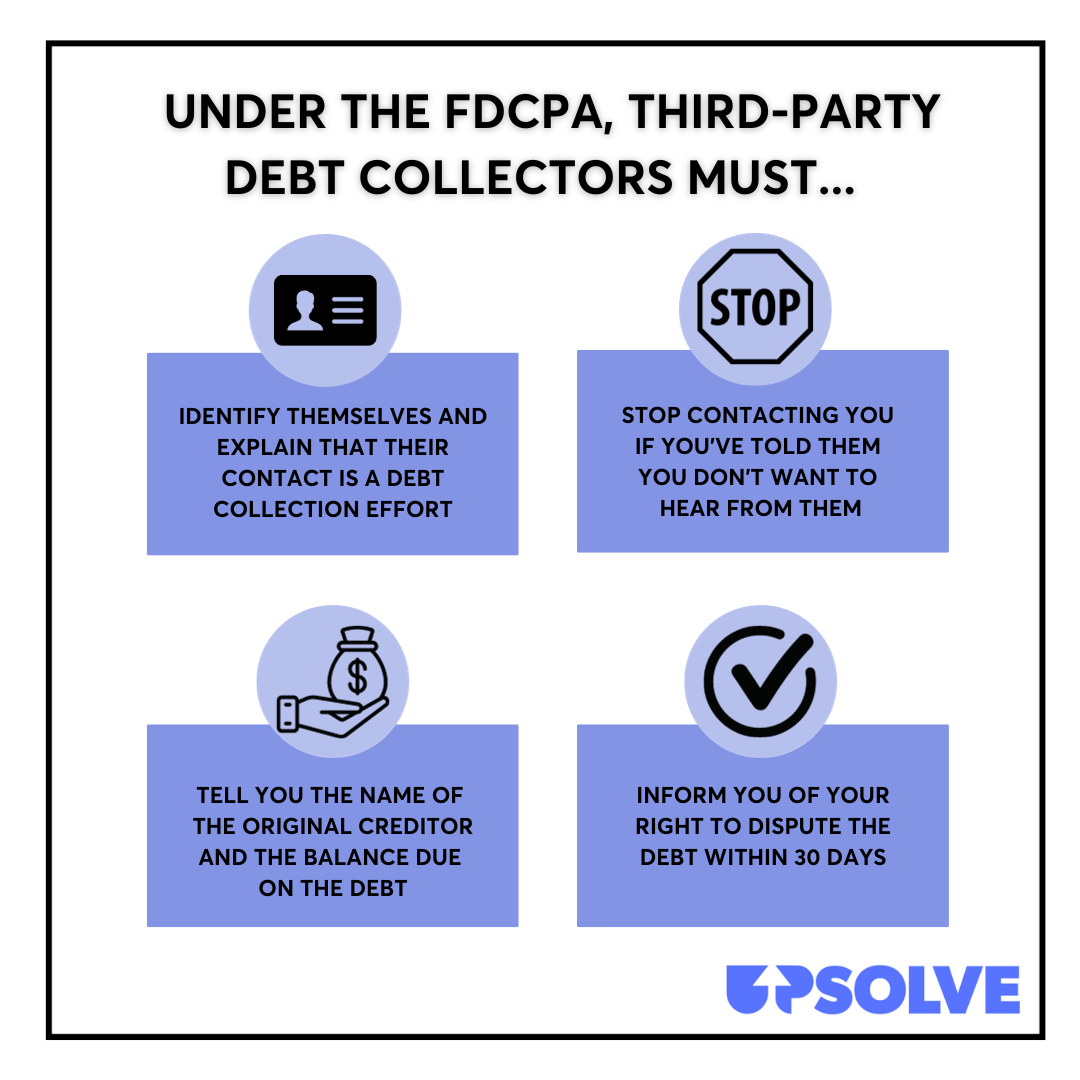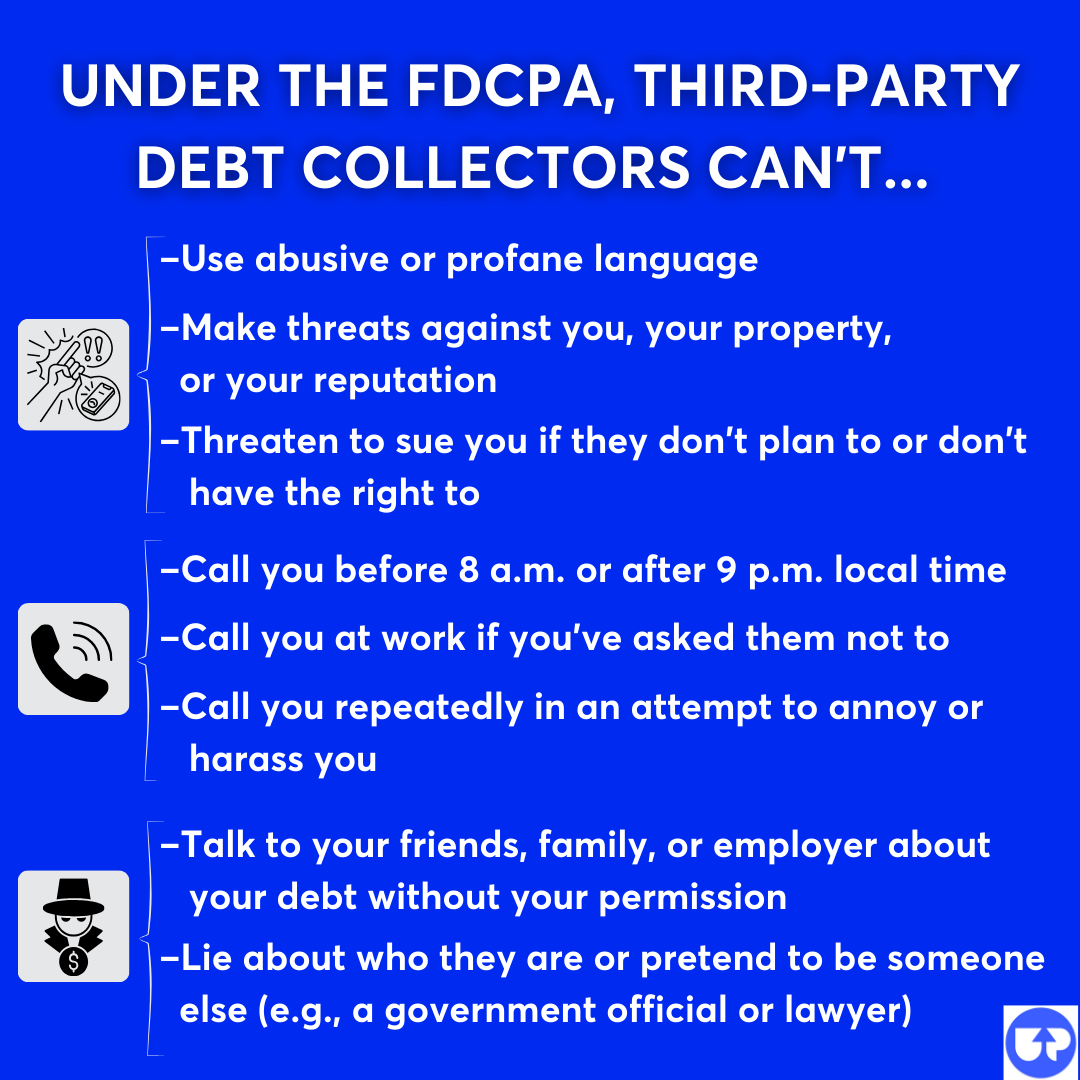
Upsolve is a nonprofit that helps you get out of debt with free debt relief tools and education. Featured in Forbes 4x and funded by institutions like Harvard University so we'll never ask you for a credit card. Get debt help.
In a NutshellIllinois has two state laws that protect its residents against unfair, deceptive, harassing, or fraudulent debt collectors: the Illinois Collection Agency Act (ICAA) and the Illinois Consumer Fraud and Deceptive Business Practices Act (ICFDBPA). Additionally, a 2018 Illinois Supreme Court Rule sets certain requirements for creditors and debt buyers who file debt collection lawsuits. This is unique to the state of Illinois and helps protect consumers from being sued without proper evidence.
The statute of limitations for credit cards and medical debt is five years in Illinois.
Written by Upsolve Team.
Updated March 25, 2024
Illinois residents facing debt collection are protected by two state laws and a state Supreme Court rule:
If you live in Illinois, you’re also protected by a federal law called the Fair Debt Collection Practices Act (FDCPA).
The Illinois Collection Agency Act (ICAA) was passed to help protect consumers against harassment, fraud, and deception in the debt collection process. It applies to third-party debt collection agencies, but not to original creditors or lenders.
Under the ICAA, debt collection agencies must:
Under the ICAA, debt collection agencies can’t:
The Illinois Consumer Fraud and Deceptive Business Practices Act (ICFDBPA) is a consumer protection law. While it’s not aimed specifically at debt collectors or debt collection activity, it may still provide important protections for those facing debt collection in Illinois.
Essentially, the law prohibits unfair and deceptive business practices in consumer transactions. Unlike the ICAA, the ICFDBPA gives consumers the right to sue companies that violate this law for actual and punitive damages. Actual damages are costs you incurred or money you lost. Punitive damages are compensation for breaking the law.
In fact, the ICAA states that debt collectors who violate its harassment or communication provisions are also violating the ICFDBPA. In other words, these two laws can work together on behalf of consumers in Illinois who want to sue debt collectors who break the law.
Knowing Illinois’ debt collection laws helps you understand your rights and can also help you identify potential defenses if you get sued by a debt collector. Unfortunately, this is becoming an increasingly common practice. Many states don’t have any laws or rules requiring debt collectors to provide evidence that they own the debt and can legally collect it. Illinois is an exception thanks to Supreme Court Rule 208.2.
This rule applies to third-party debt collectors, credit card collection agencies, and original creditors. This means it has a wider reach than Illinois’ consumer protection laws.
Under Rule 208.2, to file a debt collection lawsuit, you must also complete an affidavit that includes:
Again, in other states, the debt collector can just file a lawsuit with minimal or no evidence. They aren’t expected to provide this evidence or additional information unless you show up to fight the lawsuit and ask them to prove their case.
However, in Illinois, debt collectors have to do more work upfront to sue you. This may make it easier for you to identify defenses in the case or for the judge to dismiss it before it goes to trial if the debt collector hasn’t properly followed the rule.
In addition to the state laws and rules listed above, Illinois consumers are also protected by the Fair Debt Collection Practices Act. You’ll notice that the FDCPA has a lot of similar rules as the Illinois Collection Agency Act.
Here’s a basic overview of the FDCPA:

Here’s a summary of the major protections and prohibitions under the FDCPA:


If you believe a debt collector has broken a state or federal law while trying to collect a debt from you, you can file a complaint with state or federal agencies or sue them in court for damages.
At the state level, you can report bad debt collector behavior to the Illinois Department of Financial and Professional Regulation or to the attorney general. Filing a complaint helps flag issues, which ultimately helps the attorney general and others to enforce state laws and penalize those who violate them.
You can also file a complaint with the Consumer Financial Protection Bureau (CFPB). This is the federal agency that helps enforce the FDCPA.
If you believe the debt collector has violated the Illinois Consumer Fraud and Deceptive Practices Act, you can bring a civil lawsuit against them in a state court to try to recoup actual damages.
If a third-party debt collector has violated the FDCPA, you can also bring a lawsuit against them in federal court. If you win the case, you can receive actual damages for harm or loss and statutory damages of up to $1,000.
If you need free or low-cost legal advice to help with a lawsuit, check out: